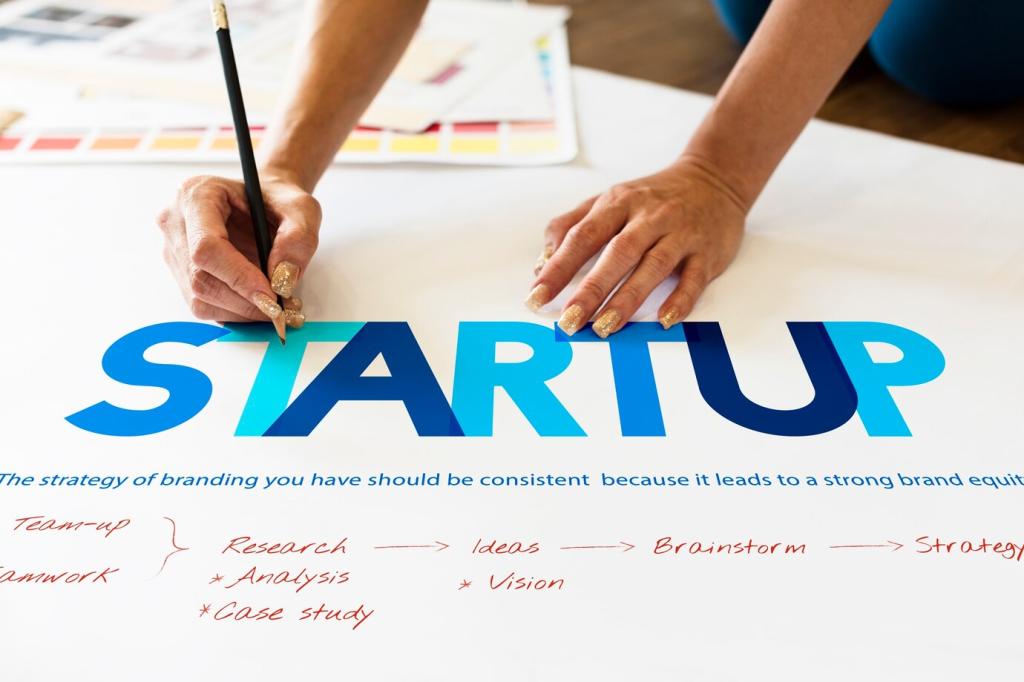Theme selected: How to Choose the Right Financial Consultant for Your Startup. This guide welcomes founders with clear, practical steps, lived experiences, and smart questions so you can find a financially savvy partner who accelerates your vision. Share your needs, subscribe for future founder playbooks, and let’s choose wisely together.
Clarify Your Startup’s Financial Needs Before You Search
List the exact outcomes you want: a reliable model for hiring decisions, board-grade reporting, fundraising readiness, or clean books for diligence. Clear outcomes help you screen consultants efficiently and keep scope tight, timelines realistic, and success measurable from day one.


Clarify Your Startup’s Financial Needs Before You Search
Seed-stage teams may need lightweight forecasting and cash management, while growth-stage startups require cohort analytics, unit economics, and scenario planning. Outline workloads you cannot cover internally, from bookkeeping and payroll to investor reporting, then match those gaps with specialist capabilities.
Prior startup experience beats generic corporate backgrounds
Ask for examples from companies resembling yours in stage and business model. Probe how they handled runway crises, messy books, and fundraising sprints. Look for scars and solutions—pragmatic fixes, not ivory tower theory—because urgency and ambiguity define startup finance reality.
Verify technical competence across accounting, tax, and modeling
Request a short walk-through of a financial model they built, including assumptions, driver trees, and sensitivity tabs. Confirm familiarity with relevant taxes, revenue recognition, and compliance in your jurisdictions. Strong fundamentals prevent expensive surprises and keep your investor story consistent.

Chemistry, Communication, and Working Style Are Make-or-Break
Share a tricky scenario—late invoices, shifting CAC, or a hiring freeze—and watch how they structure the problem. Do they ask crisp questions, propose a testable plan, and set expectations? That call previews how decision-making will feel in intense moments.
Understand Fee Models and Total Cost of Engagement
Ask for a written scope, deliverables, and milestone dates. Hourly can fit variable needs; retainers stabilize access; projects suit defined outcomes. Model total cost using realistic hours and buffers, then pressure-test against your runway and upcoming fundraising timeline.
Understand Fee Models and Total Cost of Engagement
If equity is discussed, keep it small and tied to clear deliverables. Avoid performance fees tied solely to fundraising size; instead link to readiness metrics. Ask how they guard against conflicts when they advise multiple startups in your space or investor network.
Run Practical Due Diligence and Risk Management
Confirm relevant certifications, active business registrations, and professional liability insurance. Ask about past audits or regulatory interactions. These safeguards are boring until they are essential, and they demonstrate a consultant’s respect for risk and accountability.

Measure Value: What Good Looks Like After You Hire
Track runway, burn, and cash conversion improvements
Within weeks, you should see a clear cash view, cleaner accruals, and a model you actually trust. Measure burn accuracy, forecast variance, and invoicing speed. Progress here compounds directly into smarter hiring, marketing, and pricing decisions across the company.
Establish a board-ready reporting rhythm
Adopt a monthly pack with financials, unit economics, cohort views, and driver commentary. Investors should understand what moved and why, within minutes. This discipline transforms meetings from archaeology into decision-making, strengthening credibility when you raise your next round.
Keep scenario planning alive, not a one-off file
Run quarterly scenarios for hiring, pricing, and fundraising timing. Update assumptions, record learnings, and capture deltas versus plan. A living model turns uncertainty into advantage, proving your consultant is building capability, not just delivering spreadsheets.
Ask how they translate traction into a coherent growth thesis, connecting unit economics to market size and defensibility. Strong consultants simplify complexity without hiding risks, helping founders engage investors with clarity instead of hopeful generalities or vanity metrics.
Fundraising Readiness: Selecting a Consultant Who Helps You Close
Your consultant should organize financials, contracts, revenue schedules, and model assumptions into a clean structure. Every number must reconcile across statements and decks. When diligence feels boring, you win; boredom in diligence signals trust and reduces negotiation friction.
Fundraising Readiness: Selecting a Consultant Who Helps You Close

Three weeks before a seed extension, a founder discovered inconsistent revenue recognition and a runway estimate off by two months. A recommended consultant rebuilt the model in days, exposing hidden churn and consolidating scattered invoices into reliable, investor-ready schedules.

They created a weekly cash dashboard, tightened collections, and clarified unit economics by segment. The board meeting shifted from panic to clear decisions: pause two hires, refine pricing tests, and time the raise after demonstrating improved retention with cleaner cohorts.

The startup closed the extension on stronger terms because the story matched the numbers. The lesson: choose a financial consultant who brings calm, candor, and systems that endure. Share your own lessons and subscribe for deeper founder frameworks on making disciplined financial choices.
